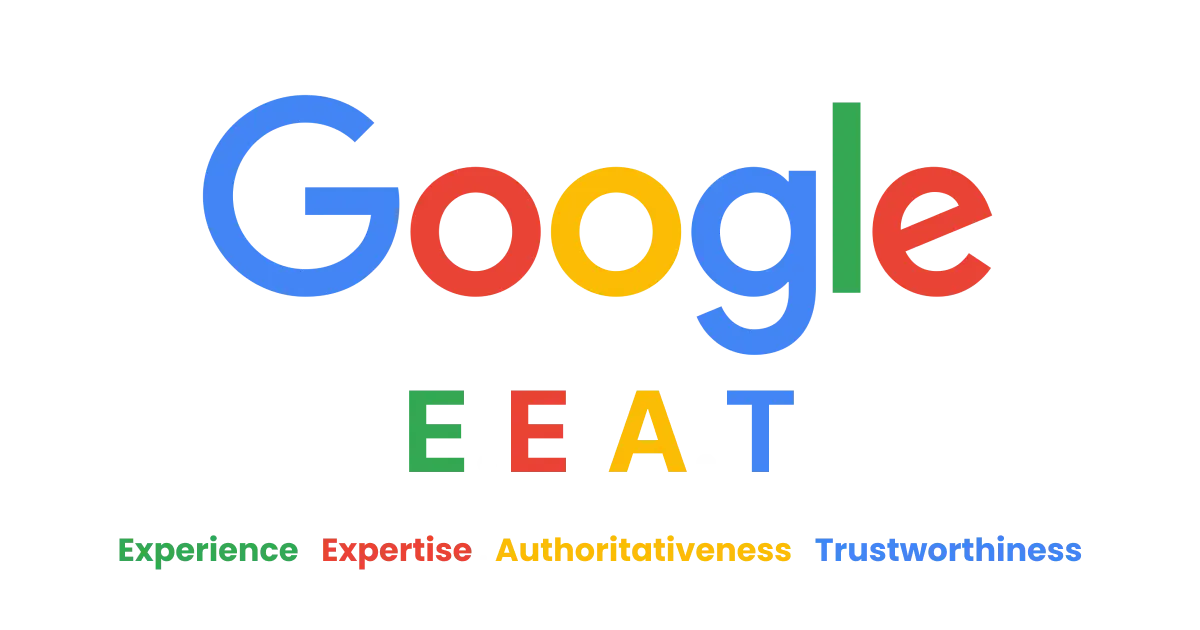Does E-E-A-T Actually Impact Domain Authority? A No-BS Guide

Let's cut through the noise. The SEO world loves a good buzzword, and for the past couple of years, the belle of the ball has been E-E-A-T. You've seen it everywhere. SEO gurus preach it, marketing agencies sell it, and you're probably nodding along, thinking it's important, without being 100% sure why.
Here’s where the real confusion starts. You know your Domain Authority is a critical metric. You use a DA PA checker to track your progress. So, the logical question is: does this Google concept, E-E-A-T, have any real effect on my Moz-defined DA score?
The answer isn't a simple yes or no. It's more interesting than that.
Most articles will give you a vague, wishy-washy answer. This isn't one of those articles. We're going to give you the straight scoop on the relationship between Google E-E-A-T and your Domain Authority. We'll connect the dots between Google's philosophy and the numbers you actually track, so you can stop chasing trends and start building real, lasting website authority.
Chapter 1: Let's Clear the Air: What is E-E-A-T, Really?
Before we can connect E-E-A-T to SEO, we need to be on the same page about what it is. It's not a single score or a switch you can flip. It’s a framework from Google's own Search Quality Rater Guidelines—the massive handbook used by thousands of human reviewers to audit the quality of Google's search results.
It's how Google defines a high-quality, trustworthy source. Let's break it down.
- E - Experience: This is the new kid on the block, added in late 2022. It asks: does the creator have relevant, first-hand life experience with the topic? Think about it: would you trust a product review from someone who has actually used the product for six months, or from someone who just read the press release? That's Experience. It's about "I've been there, I've done that."
- E - Expertise: This is the more traditional form of knowledge. Does the creator have the necessary skills and knowledge in the field? For a medical article, this would be a doctor. For an article on tax law, a certified accountant. For an article on coding, an experienced developer. It's the "book smarts" to Experience's "street smarts."
- A - Authoritativeness: This is, arguably, the most important letter for our discussion. Authoritativeness is about your reputation. It’s not just about what you know; it’s about whether the rest of your industry recognizes you as a leader. Who links to you? Who quotes you? Who mentions your brand as a go-to resource? If Expertise is what you know, Authoritativeness is who you are.
- T - Trustworthiness: This is the foundation of the entire framework. Can users trust you? Is your site secure (HTTPS)? Is your contact information easy to find? Are your privacy policies clear? If you're selling something, are your refund policies transparent? Trust is the bedrock upon which everything else is built.
A Quick Word on "Your Money or Your Life" (YMYL) For certain topics—finance, health, law, news—Google holds the E-E-A-T standard incredibly high. They call these "Your Money or Your Life" (YMYL) topics because bad information could seriously harm someone. On these pages, demonstrating strong E-E-A-T isn't just good practice; it's table stakes.
Chapter 2: The Million-Dollar Question: Is E-E-A-T a Direct Ranking Factor?
Let's get this out of the way right now. The short answer is no.
Google does not have a single "E-E-A-T score" that it assigns to your website. It's not a technical metric their crawlers can just measure like page speed.
So, if it's not a direct ranking factor, why should you care?
Because E-E-A-T is the philosophy behind dozens of signals that are direct ranking factors.
Think of it this way: a master chef has a philosophy about cooking—using fresh, local ingredients, balancing flavors, perfect presentation (that's E-E-A-T). There's no "philosophy score" on the final dish. But that philosophy dictates the actual ingredients they use: the quality of the olive oil, the freshness of the basil, the cut of the meat. It's those ingredients that make the dish amazing.
In SEO, Google's algorithms are trying to find the digital "ingredients" that point to strong E-E-A-T. They look for signals like backlinks from other authoritative sites, mentions in the news, positive user engagement, and clear authorship information. E-E-A-T is the "why," and the algorithm's signals are the "how."
Chapter 3: Connecting the Dots: The Indirect Path from Strong E-E-A-T to a Higher Domain Authority
Okay, here's the core of the entire article. How does this Google philosophy affect a third-party Moz metric like Domain Authority?
The relationship is powerful, but it's indirect. It works because the very things that signal good E-E-A-T to Google are the exact same things that Moz's algorithm uses to calculate your Domain Authority score.
Let's connect the dots.
Authoritativeness = High-Quality Backlinks
This is the most direct connection. How does the web know you're an authority? Because other authorities link to you. When a university, a major news outlet, or a respected industry leader cites your work with a backlink, they are casting a vote of confidence. Google sees this vote and says, "This site is an authority."
Simultaneously, what is the single most important factor in calculating Domain Authority? You guessed it: the quantity and quality of backlinks from other high-authority sites. When you focus on building your real-world authoritativeness, you naturally acquire the high-quality backlinks that are the primary fuel for a high DA score.
Expertise = Content That Earns Links
Why does anyone link to anything? Because it's a valuable resource. When you create content that demonstrates true expertise—a massive, in-depth guide, a piece of original research, a data study that reveals a new trend—you create a "linkable asset." You've made something so valuable that other bloggers and journalists want to reference it in their own work.
This is a core tenet of E-E-A-T SEO. And every single one of those earned links is another signal that tells Moz's algorithm to increase your domain authority.
Experience & Trust = Brand Signals & User Engagement
This connection is a bit softer, but no less important. When you operate with trust and showcase real experience, you build a loyal audience. People trust your reviews. They come back to your site again and again. They search for your brand name directly in Google.
These "brand signals" and positive user engagement metrics are sophisticated SEO signals that tell Google you're a legitimate entity. While Moz's DA is less focused on user engagement, the brand-building activities that create trust (like getting positive press mentions and reviews) very often result in high-quality backlinks, which do directly impact your DA. A trusted brand is a mentioned brand, and a mentioned brand is a linked-to brand.
See the pattern? You don't "optimize" for DA. You build a real, authoritative, trustworthy presence, and a higher Domain Authority is the score you get as a result.
Chapter 4: Your E-E-A-T Action Plan for Better SEO & DA
This all sounds great in theory, but how do you actually do it? Here is a practical, no-fluff action plan.
First, Conduct a Quick "E-E-A-T Audit" of Your Site:
- About Us Page: Is it detailed? Does it tell your story and showcase your team's credentials?
- Author Bios: Does every blog post have a clear author with a bio, a picture, and links to their social profiles?
- Contact Info: Can users easily find your physical address (if applicable), phone number, and email?
- Policies: Are your privacy policy, terms of service, and refund policies easy to find and understand?
- HTTPS: Is your site secure? This is a non-negotiable trust factor.
Actionable Steps for Each Letter:
-
To Showcase EXPERIENCE:
- Write case studies with real data and results.
- In your content, use phrases like "In my experience...," "When I tested...," "Here's what I found after using..."
- If you review products, include original photos and videos of you actually using them.
-
To Build EXPERTISE:
- Stop writing thin, 500-word blog posts. Focus on creating cornerstone content—massive, 2000+ word guides that cover a topic so thoroughly that no one else needs to write about it.
- Publish original data. Survey your audience. Analyze industry trends. Create charts and graphs. Become a primary source.
-
To Boost AUTHORITATIVENESS:
- This is all about getting your name out there. Start with Digital PR.
- Sign up for services like HARO (Help a Reporter Out) to get quoted by journalists.
- Offer to speak on industry podcasts.
- Co-author content with other respected experts in your field. Every mention and link you get builds the authority that directly impacts your Domain Authority.
-
To Cement TRUSTWORTHINESS:
- Proactively gather and display reviews and testimonials.
- Make it easy for customers to get help.
- Be transparent about how you make money (e.g., affiliate disclosures).
Conclusion: Stop Chasing Scores, Start Building Authority
Let's circle back to our original question. Does E-E-A-T affect Domain Authority?
Yes, absolutely. But not directly.
Think of it like health. You don't improve your health by staring at your blood pressure monitor. You improve your health by eating nutritious food, exercising regularly, and getting enough sleep. A better blood pressure reading is the result of those healthy actions.
Similarly, you don't increase your domain authority by "doing E-E-A-T" as a checklist item. Your Domain Authority increases as the natural, inevitable outcome of you doing the hard work of becoming a genuine, trusted, and respected authority in your field.
So, stop chasing the score. Start building a brand worth listening to. Focus on demonstrating your experience, proving your expertise, building your authoritativeness, and earning trust. Do that consistently, and when you check your score with a DA PA checker, you’ll be very happy with the trend line.
